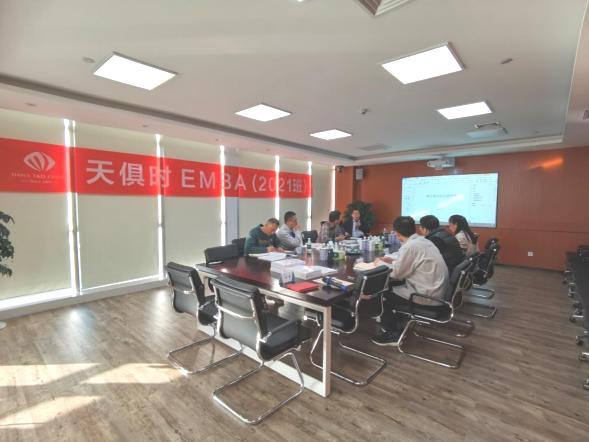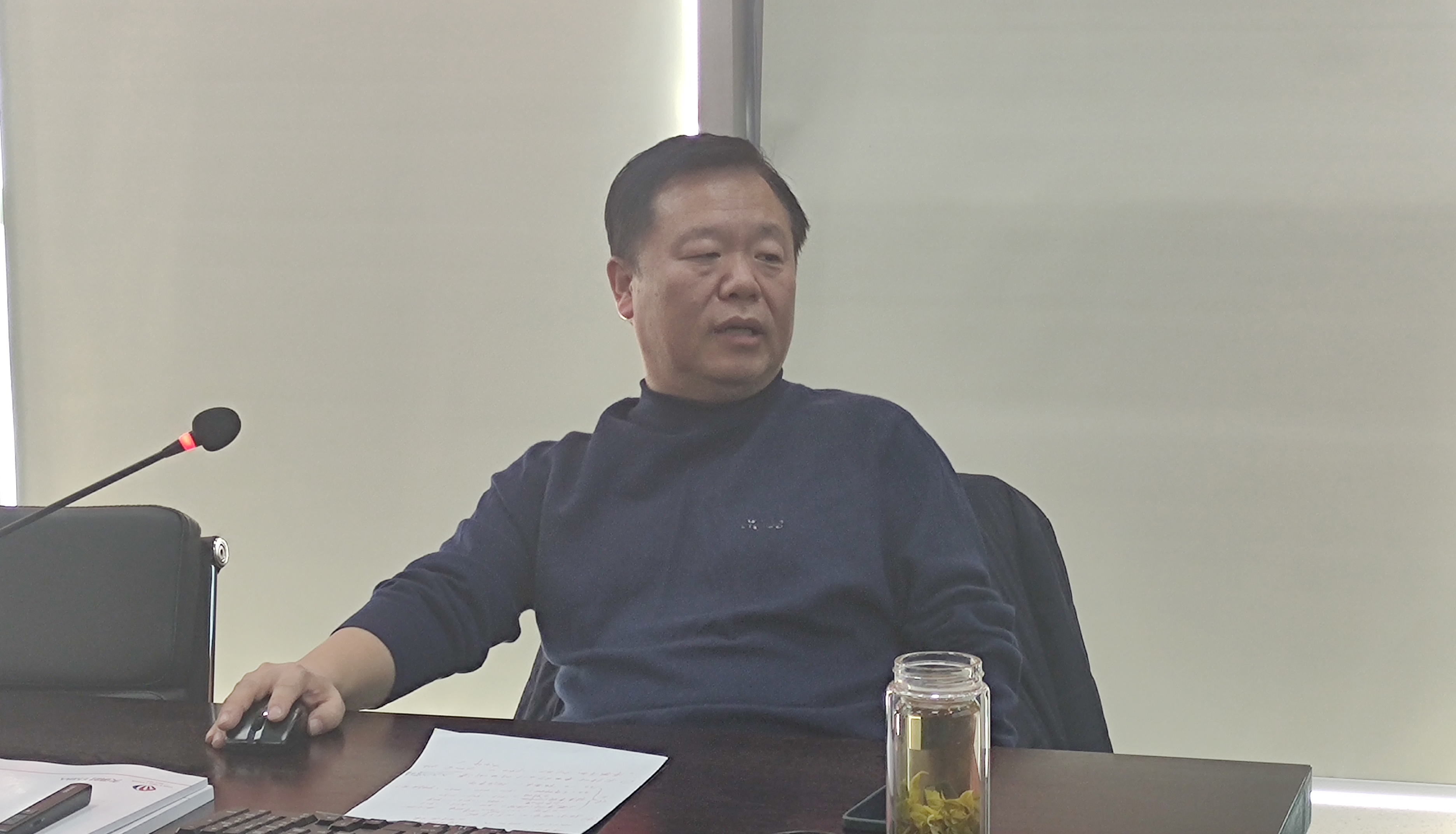 source:TIANS
source:TIANS date:2021-12-03
date:2021-12-03From November 26th to 27th, the third course of EMBA 2021 class of TIANS University officially started. Wu Yafeng, director and president of TIANS Group, master of China Europe International Business School, and Chen Ping, director, executive vice president, PhD in business administration at Shanghai Jiaotong University He was the lecturer of the two topics "Innovation and Entrepreneurship" and "Supply Chain Management" respectively, and led the EMBA 2021 students of TIANS University to study and discuss.
EPC engineering general contracting is a project organization model vigorously advocated by the state. Its advantage lies in clear responsibilities, reasonable connection between design, procurement, and construction stages, which can shorten the construction period and control the investment. As an early practitioner of the domestic EPC project general contracting model, Tianju always relies on the advantages of technology and talents, and has gradually formed a unique technology-led general contracting model, but how to further improve the management level and promote the enterprise Realizing the second entrepreneurship and building the company into a world-class engineering technology enterprise are issues that should be considered at this stage. The curriculum theory of the two teachers is connected with the practice of business management, followed by good guidance, and carried out in different levels.
Meet customer needs, optimize cost allocation
The scientific management of the supply chain is essential to increase the competitive advantage of enterprises, especially the construction of EPC projects in industrial projects. Due to the wide variety of main equipment and materials, the long order cycle, and the high cost of inventory management, how to use scientific methods to connect owners, technicians, designers, purchasers, construction personnel, and suppliers, and how to use big data and scientific inventory Management to achieve the best efficiency, the shortest lead time, the best price, and the least inventory to enhance the competitiveness of enterprises is essential.
Chen Ping conducted the "Supply Chain Concept, Inventory Management, Supply Contract, Procurement and Outsourcing, Product Design and Supply Chain, Information Value, Customer Value, Pricing, Process Management Informationization and Standardization, Supply Chain Finance, etc. "Chain Management" course. In the inventory management section, Chen Ping explained in detail the two basic models of the economic batch model and the single-period model to explain the inventory problem and the two principles of the lowest inventory cost principle and the maximum profit principle; in the product design section based on the entire supply chain In the middle, Chen Ping vividly explained the balance between inventory and customization and the economic issues of product design and packaging and transportation through the cases of Dell Computer, Panasonic Bicycle, IKEA of Sweden, and Robamate.

Chen Ping discussed with the trainees
After the course explanation, Chen Ping led everyone to analyze the problems and solutions in the supply chain management model of Tian Ju Shi. The trainees actively spoke and discussed about the five parts of TIANS's supply chain management: technology management, material management, supplier management, approval process and cycle management, and price fluctuation management. Miao Zhengxu, general manager of the Procurement and Control Center of TIANS, said in the discussion session of "Methods to Reduce Procurement Costs" that "Centralized procurement is one of the methods for the group to effectively reduce procurement costs at this stage", but "how to maximize integration is a The problem is that the construction period of various materials is different, and the construction site is also different, and the difference is large." Peng Xiaohui, a student of the EMBA 2021 class of TIANS University and deputy general manager of TIANS's automatic control division, believes that "accelerating the development of information technology and implementing a more precise dynamic inventory management model may solve this problem to a certain extent."

A company that does not innovate has no future, and the more difficult it is to innovate, the greater the value of innovation. But innovation is not blind, let alone easy. For companies at different stages of development, the focus and difficulty of innovation are not the same. Wu Yafeng brought a wonderful "Innovation and Entrepreneurship" course to the 2021 EMBA students. The course combines the three stages of industry evolution and enterprise development and analyzes the three stages of innovation such as technological innovation, management innovation and service innovation. Wu Yafeng pointed out that the development stage of an enterprise must match the development stage of the industry, so that the enterprise can survive and survive better. For example, in different development stages of an enterprise, the focus of the enterprise's attention is also different. For start-ups, R&D and technical internship are the most important. Only good technology and products can drive the development of the company; for companies that have developed to a certain level, increasing business volume and large-scale growth are the keys; for large companies, how to achieve the right Agile response to markets and policies is the key. The content of the course explains profound theories in simple language, inspires wisdom, and is thought-provoking.

Wu Yafeng shares innovative cases with students
In the case discussion session, combined with the "51.com" and "Apple" cases shared by Wu Yafeng, the trainees explored the "Second Entrepreneurship Model of the Business Unit" together. Song Xiaohui, a student of the EMBA 2021 class of Tianju University, vice president of the group, and chairman of the biomedical business unit, believes that “the group is now in the development stage of'from 1 to N'. How to use'exponential thinking' to achieve'compound interest growth' is our core Logic, and at the same time, on the basis of mainstream business, we must adopt the'business department development' model to refine more business segments and achieve lean transformation of the enterprise."


 BOOK
BOOK 中文
中文
 Tender Hall
Tender Hall  Resource Center
Resource Center

 RETURN
RETURN